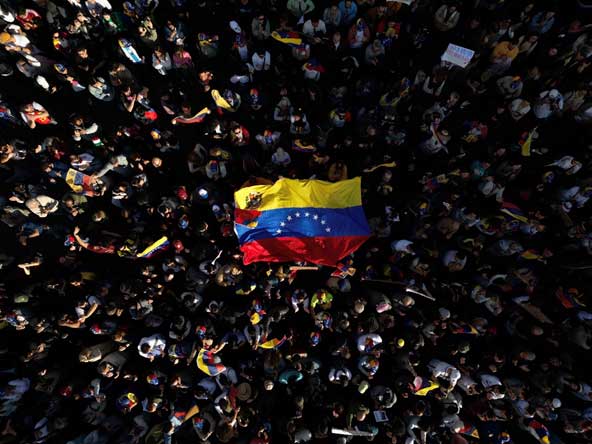
HAVANA TIMES – There was an unusual sense of hope going into Venezuela’s 28 July presidential election. Democracy seemed on the horizon. Maria Corina Machado, the opposition’s rallying figure, had inspired a rare level of enthusiasm, promising millions of exiles they’d soon be able to return to a new Venezuela.
It seemed voting could bring change. And in a way, it did: the election proved the opposition could win despite an incredibly skewed playing field. But President Nicolas Maduro, in office since 2013, quickly declared himself the winner despite all evidence to the contrary, unleashing repression on the many who took to the streets in protest.
The situation is now at a standstill, and a Maduro-led regime lacking any legitimacy may use ever greater repression to stay in power. Many are deeply disappointed, but longtime Venezuelan activists advise patience alongside ongoing pressure. They knew the election could be the beginning of a much longer process. Now it’s a matter of finding the right mix of protest and international incentives to force negotiations that could lead to an eventual transition to democracy.
Election Day
Although there were irregularities during the vote, they didn’t seem major. Most people in Venezuela, unlike Venezuelans abroad, seemed able to vote, and opposition witnesses were mostly allowed to visit polling stations and receive a copy of the tally sheets produced by voting machines, as entitled to by law.
Fraud was hatched elsewhere, in the National Electoral Council’s (CNE) Totalization Room, where vote tallies from 30,000 polling stations are processed and results calculated. The body responsible for overseeing elections is dominated by government loyalists.
The voting system is technically flawless: it operates on a closed circuit, making it almost impossible to hack, and contains multiple safeguards. This means that on election day, voting data flowed into the CNE as expected, and the count appeared to go smoothly until about 40 per cent of votes cast had been counted. That’s when the authorities apparently realized they were losing by an insurmountable margin and stopped transmitting data. Witnesses for the opposition were denied entry to the Totalization Room. The CNE website froze and became inaccessible – and has remained so ever since. Without a shred of evidence, the government blamed ‘massive international hacking’, allegedly by opponents based in North Macedonia.
Throughout the afternoon, senior government officials issued media statements seemingly designed to prepare people for the announcement of a ruling party victory. They circulated exit polls showing Maduro with a lead of over 20 points, supposedly from a polling company that turned out to be fake. Meanwhile, exit polls conducted by opposition and independent pollsters gave Gonzalez around 70 per cent.
Finally, around midnight, the CNE announced on national television that Maduro had won with 51.20 per cent against González’s 44.20 per cent. The vote totals were exact percentages to one decimal place, a near impossibility. It looked as though someone had decided on a percentage for each of the two main candidates and taken it from there. Without providing any precinct by precinct data, the CNE declared Maduro re-elected president.
The Carter Center, the only independent election observer mission allowed, left Venezuela on 29 July, saying the results were unverifiable and the election couldn’t be considered democratic. The opposition, civil society and the international community have since called on the government to produce detailed vote tallies, to no avail.
On 13 August, a UN panel of experts issued a preliminary report concludin


